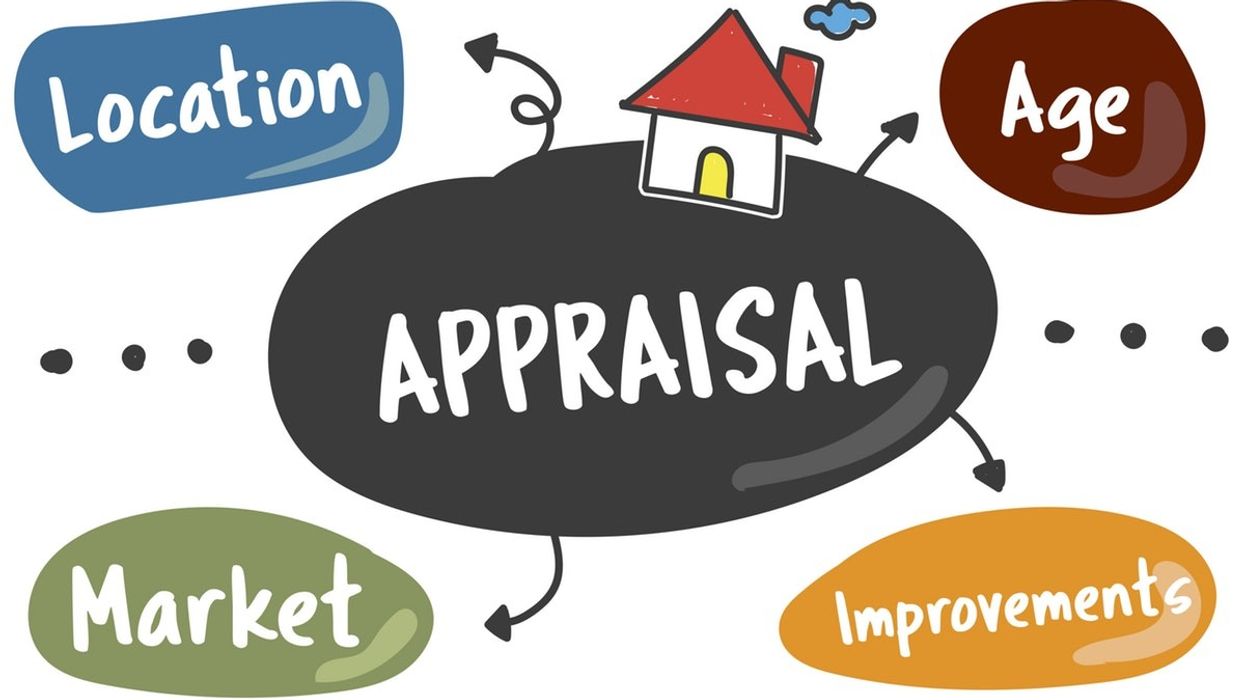A large part of the home buying process involves securing a mortgage. But securing a mortgage is easier said than done.
Before a lender to agree to give out huge sums of money they review multiple documents and statements, one of them being an appraisal.
Once you've found a home that you love and the seller accepts your offer, the sale remains"conditional" until all conditions (if applicable) are fulfilled. One of the most common conditions is financing.
READ: Why You Were Denied A Mortgage After Getting Pre-Approved
Having a financing condition allows buyers to take a few days to make sure they can get approved for a mortgage before the sale goes firm committing them to the purchase.
At this point, the lender assesses all the financial documents to make sure the borrower qualifies for a home loan at the amount they're requesting. And it's not just the borrower that has to qualify, the home has to qualify too. Lenders aren't in the business of arbitrarily handing out more money for assets that simply aren't worth as much as the amount requested.
READ: Real Estate Terms All First-Time Homebuyers Should Know
As such, lenders typically require homes to be appraised by an appointed appraiser who assesses the value of the property according to current market conditions. If the appraisal comes in lower than what you agreed to pay for the home, the odds of your mortgage being denied are a lot higher.
So, what exactly can affect a home appraisal in a real estate transaction? Here are eight factors that can impact your appraisal.
Location
In the world of real estate, location always takes the top spot. The same house in a shabby location will be worth a lot less than it would in a much more desirable area. A home's location will dictate not only how much it's worth, but how long it will take to sell.
When it comes to an appraisal, it's not just the neighbourhood itself that is considered, but also the precise lot within that neighbourhood.
For instance, a home on a large lot on a quiet cul de sac will be valued higher than a home backing onto a major roadway or hydro field, even though they may be located in the same neighbourhood.
READ: Should You Buy The Best Or Worst House On The Block?
Square Footage
The overall square footage of a home is another area that is assessed to determine the property's appraised value. The appraiser will measure all livable spaces of the home to determine its total square footage, as well as the number of storeys. Both will be considered when evaluating the value of the home.
Number of Bedrooms and Bathrooms
The number of bedrooms and bathrooms that the home has influences its appraisal value. The appraiser will compare the property to others in the area with the same number of bedrooms and bathrooms to make a more accurate comparison of value.
The more bedrooms and bathrooms a home has, the higher the appraisal value will be.
Renovations and Improvements
Certain improvements and upgrades will help to increase the value of a home. For instance, a new kitchen, remodelled bathroom, finished basement, and newly added landscaping can add value to a property. An appraiser will consider these renovations when assessing the value of the home.
READ: HGTV’s Bryan Baeumler Tells You The Home Reno Projects That Pay For Themselves
Age of the Home
It might be assumed that a newer home would be valued higher than an older home. And in many cases, that's true. Newer homes have more modern finishes and don't require as much repair as older homes might.
On the other hand, there are certain perks to older homes that you might not get with newer ones, such as those that are located in historic areas or on streets with mature trees. Either way, the appraiser will take the age of the home into effect when assessing the value of the home.
Construction Materials
The type of materials used to build the home will also be factored into the equation. A home that's built with better-quality and modern finishes will be valued higher than a home with poor-quality, out-of-date materials. Updating materials goes a long way to keeping a home in better condition and even increasing its efficiency and level of safety.
Style of the Home
The overall design and style of the home will also be included in the appraisal. Certain classic designs won't negatively affect the long-term value of a home, but trendy styles might be appraised at a lower value if they're not in style anymore.
READ: One Economist Thinks Canada’s Housing Market Could Weaken Next Year
Current Housing Market
The overall real estate market will always play a role in the appraised value of a home. A home that may have been worth $500,000 two years ago will likely have a much different appraised value today, for example. Further, whether or not the current market is a seller's versus a buyer's market will also matter.
Final Thoughts
Clearly, there are plenty of factors that are involved in the appraisal of a home. A professional appraiser appointed by a lender will use a standardized approach to assessing the value of the home in order to identify how closely it matches the price you've agreed to pay for it. If all goes well, the appraisal will come in at or around the sale price so your mortgage can get approved and the deal can close!





















